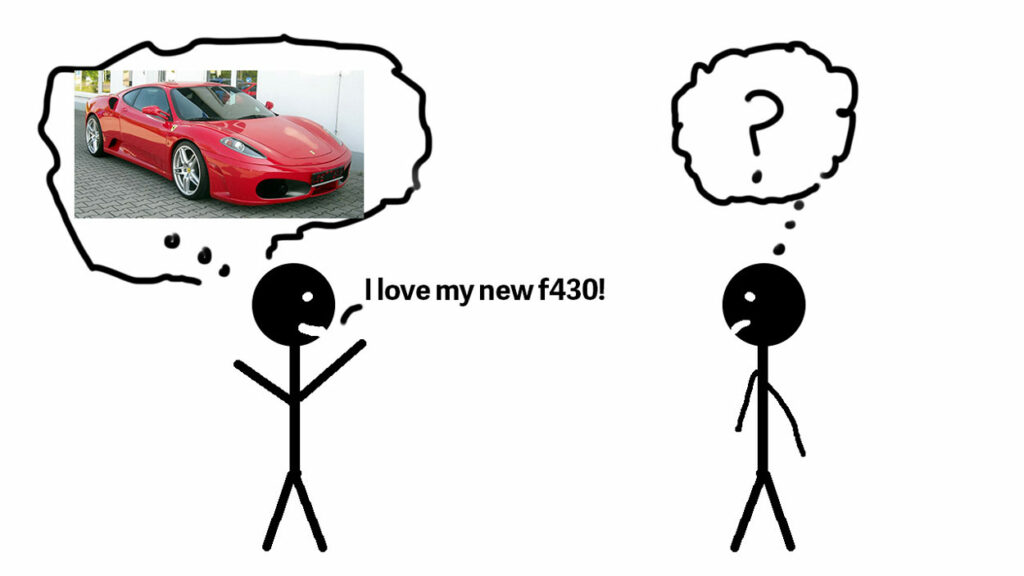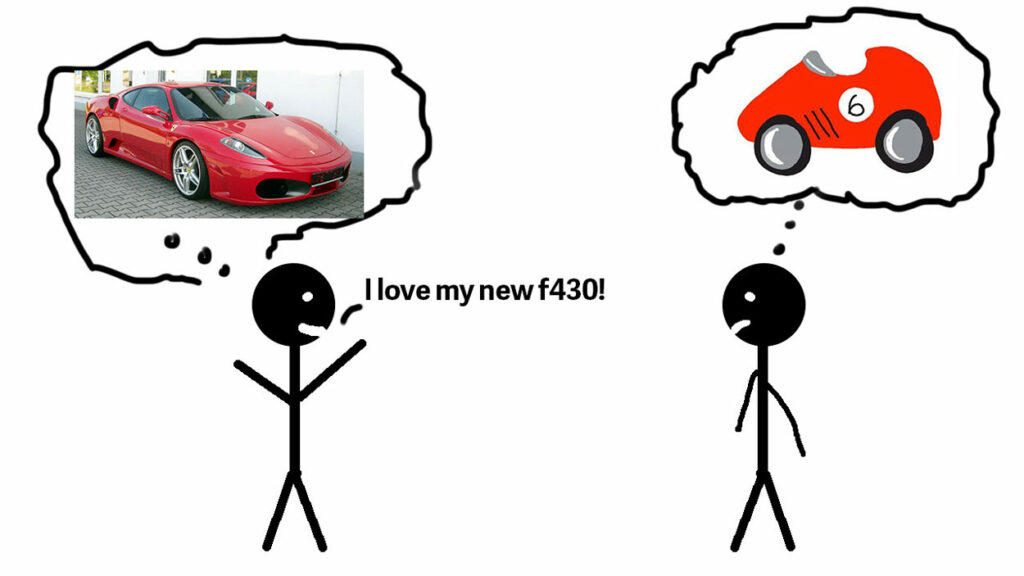3 Types of Miscommunication
Hello blog readers,
Nick here. I’m back in action after a several week blog-sabbatical. I separated my right pectoral muscle from my arm in a surfing accident a few weeks ago, so while I’ve going through surgery and rehab Rob has filled in for me on the blog-writing front. Thanks Rob! (Also, I noticed that one of one of my posts from earlier this year, Surfing and Adversity, was uncannily prescient).
Today as I try to get my writing mojo back, I figured I’d start with a quick post excerpted from a talk we recently gave entitled “Mental Models and Miscommunication.” Mental models are one of my favorite hobbyhorses, and I often talk with clients about their importance in technical communication. See here, and here for more background on what a mental model is.
When we are explaining something complex it helps to be aware of our own mental models of the subject, and to realize that our audience might have a different mental model in their heads. For example, if I were to tell you I took my car to the shop this morning, you might have a general idea of what I’m talking about, and you might guess what type of car it is based on what you know about me. You wouldn’t even be consciously thinking about it but somewhere in your mind you probably imagined what the car looked like…maybe it was a grey Corolla, or a black Jetta, or a pink Cadillac (probably not).
Now what if I told you I’m taking my red Ferrari F430 into the shop, and by the way, here’s a picture of it….

As you can tell by that attribution on the photo I do NOT drive a Ferrari, to the shop or anywhere else. But the point is that after seeing this picture you now you have a much clearer idea in your mind (a mental model) of the car I’m talking about.
When two people are talking about something and they don’t have the same idea in mind it can lead to miscommunication. The first type of miscommunication happens when the second person doesn’t have any mental model at all of what the first person is talking about:

Here are some signs that this type of miscommunication is happening: your listener’s eyes glaze over, they start looking at their phone, they say “uhhhh huh.” In this situation you are not communicating. The idea in your head is not being transferred to the listener at all.
The second type of miscommunication happens when the listener thinks they have the correct mental model in their head, but in fact they are thinking of something else:

Because the listener has the wrong mental model, this type of miscommunication might actually be the most dangerous because it is more difficult to catch. In a situation like this your listener might be nodding his or her head, agreeing with what you’re saying. It seems like you are communicating well! But in fact your listener is taking your statements and applying them to an incorrect model. The fact that it seems like a productive conversation makes it all the more dangerous.
The final type of miscommunication occurs when you are an expert and your listener is not. Your mental model is intricate, detailed, and corresponds highly to the real world while your listener has a mental model that is simpler and more vague:

The process of becoming an expert is a process of upgrading and refining your mental model of the subject matter. Be careful when talking to non-experts to make sure that you explain the terms you are using and help them transform their simple mental model into a more complex, more accurate one.
Simply being aware that other people form mental models when you speak to them, and that those mental models are likely to be very different from your own can go a long way towards helping you communicate complex ideas better.
